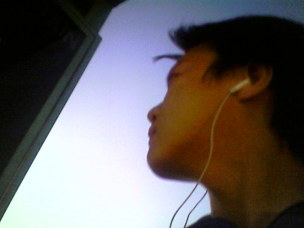The Iron Triangle
I have to admit that I've never heard this political term until my feet step into Public Administration field of study. At the outset, I have no impression about this theory. As its name, Iron Triangle, it expresses to a strong feeling of political description of the relationship among political actors, such as bureaucrats, legislatures, and interest groups. These political actors have an influence to design and direct most public policies. Their counter balance power of each institution is to check and balance.
But as time goes by, many political events that happen in Thailand make me rethink about this theory again. As you know, prime minister Taksin Shinnawatra has conquered the rival party, Democratic Party and has led the administration since 2001. In his first term of administration, he has overrided the power of other political insitutions by appointing his closed ties to control major government agencies, controlling the leading think tanks.
In public policy making process which normally occurs in the thai parliament, members of the parliament have to vote approve or disaaprove for the bill. For a new thai constitution, I do believe that its designers hope that strong prime minister, which is backed up by the majority of MPs, will lead government to the stabilized state. They hope that the ideal condition will lead growth and income of our nation.
The result is not easily turn that way. The system has shaped a new look of the triagle (originally I did not see this is an equilateral triangle which all three agencies has a collateral balance force). The shape of the triangle is very unpredictable depending on the supreme leader of the parliament. For now, I would say that the shape is formed like a straight line in which all major initiatives come from the prime minister (top-down administration).
What do we get from this system? From my perspective, I notice that our society is conforming more to materialism and capitalism. We focus so much on the number of GDP which sometimes I'm not really sure that it reflects to the real wealth of the people. While all three institutes are led by the need of the prime minister, civil sector has less unity voice to affect the public policy. Even the freedome of speech in democracy is rarely found in Taksin's administration. Nobody can criticize what goverment is doing.
The best event that might describe the tyrant power of this government is to remove TV program that criticizes and opposes government's will. Mr. Limthongkul is an another example. Removing his program from MCOT board is not the final episode of this story. Until now it is hardly to define who is right or wrong. At least from my stand point, I would love to see more ordinary people to object and fight with the unjust of government power.
I'm not saying or supporting people to rebel but at least we, the people, should show that goverment of the people must govern by the people not by a handful of people. People might be a critical force that will restore the shape of this triangle again. I hope


3 Comments:
For the music on Blogger na krab. It seems your friend found the way quick krab ;)
http://mybelovedpiglet.blogspot.com/
Just that you'll need to host your song at some other server na krab...such as Geocities :)
I agree with you that right now the iron triangle in Thailand looks more like a vertical line (with a cube on top). This structure is not sustainable, though. Push it in the right direction and the whole thing can topple over.
What do we want to see after this "vertical line" regime is over? Should Thailand replace the vertical line with an iron triangle? I think it shouldn't. When the democratic party was in power, it was very good at creating an iron triangle, whereby policymaking is limited to bureacrats, special interest groups, and the congress. Few people could participate in policy making processes. In this respect, TRT is not different from the DMP.
สิ่งที่ผมอยากเห็นการปฏิรูปหลังจากนี้เป็นต้นไปคือการมีส่วนร่วมคืนมาอีกครั้งของภาคประชาชน การปกครองโดยมีรัฐบาลกลางที่ไม่ได้ทำหน้าที่การปกครองเพื่อประชาชนโดยรวม ไม่สมควรอย่างยิ่งในการอ้างสิทธิ์อำนาจการปกครองว่าได้รับโดยตรงมาจากการเลือกตั้ง เพราะถ้าพิจารณาถึงคะเเนนที่ประชาชนโวตเข้าไปแล้วกับจำนวนประชากรทั้งหมด ยังถือว่าเป็นส่วนน้อยอย่างยิ่ง ด้งนั้นการบริหารประเทศในขณะนี้จำเป็นอย่างยิ่งที่ภาคประชาชนควรหันมาให้ความสนใจ ติดตามและตรวจสอบการทำงานของภาครัฐกันอย่างใกล้ชิด เพราะอย่างน้อยก็ยังมีการถ่วงดุลและตรวจสอบเพื่อรักษาผลประโยชน์ของชาติ
Post a Comment
<< Home